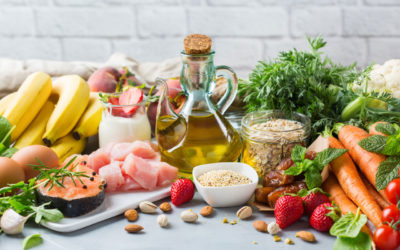Nutrition: Hoodia, “Enhanced” Waters and the Nordic Diet
Some advice on trending nutrition topics from experts in the field.
Q. IS HOODIA SAFE AS A WEIGHT LOSS SUPPLEMENT?

A. The jury’s still out. According to South African aborigines, hoodia (Hoodia gordonii), a flowering succulent that grows in the Kalahari Desert in South Africa, reduces hunger during long hunts, as well as treats conditions like indigestion and high blood pressure. Yet, folklore aside, there is no reliable scientific evidence supporting hoodia as a health tonic or weight loss supplement. A review of evidence-based literature through 2010 found no published randomized controlled trials examining hoodia’s efficacy in weight loss. In fact, one study published in 2011 found that, while hoodia use did not result in weight loss in 15 healthy women, it appeared to increase blood pressure, pulse, heart rate and a liver enzyme (which indicates potential damage to liver cells). No wonder the pharmacology companies Pfizer and Phytopharm have abandoned their clinical trials of hoodia due to negative results.
These findings haven’t impacted hoodia sales — it’s one of the most widely used natural weight loss supplements in the country. Until we know more, George L. Blackburn M.D., Ph.D., associate professor of medicine and associate director of nutrition at Harvard Medical School, says hoodia is no magic bullet for weight loss. He adds, “There is no adequate clinical trial showing efficacy or safety of products with Hoodia gordinii content.”
— Diana Cullum-Dugan, R.D.
Q. ARE ENHANCED WATERS WORTH THE PRICE?
A. With slick claims that enhanced waters improve focus, increase energy, help you “revive” or make you “glow,” it’s understandable why many consumers toss bland and boring water aside in place of these brilliantly marketed beverages. Generally that’s all these enhanced water bottles are — well-marketed hype — despite some added nutrients, such as electrolytes, antioxidants, and water-soluble vitamins like vitamin C and the B vitamins. A few diluted vitamins and minerals do not necessarily make these beverages worth the extra dollar or two compared to plain bottled water. Most health experts agree that, while high performance athletes may benefit from a sports beverage containing carbohydrates and electrolytes to enhance athletic endurance and optimize fluid retention, most ordinary people get enough electrolytes and vitamins in their diet, and thus can stick with plain old water. And since your body doesn’t store excess amounts of water-soluble vitamins, you simply excrete what is not used. Indeed, you gain more benefits from eating nutrients in whole foods than you do in their isolated forms. In the end, you’re basically paying for flavored, sometimes sweetened water. Some enhanced waters provide up to 120 calories and 33 grams of sugar per 20-ounce serving — just shy of the 140 calories and 39 grams of sugar in a can of regular cola.
— McKenzie Hall, R.D.
TRADITIONAL NORDIC DIET IS HEART HEALTHY
A plant-based, traditional Nordic diet, which focuses on fruits and vegetables (such as berries and root vegetables), whole grains (rye, barley and oats), low-fat dairy products and fish (at least three times a week), and that limits sugary drinks, refined carbohydrates and red meats, is linked with significantly lower levels of cholesterol and inflammation, which may reduce risk of heart disease. In this randomized study of 166 participants, performed in regional centers in Finland, Sweden, Denmark and Iceland, researchers compared the effects of this plant-based Nordic diet with a standard diet that included more butter, red meat and processed carbohydrate foods, and less fruits, vegetables and fish. These study results add to the growing body of evidence that plant-based traditional diets, such as this one and the Mediterranean diet, may be optimal plans for health.
Journal of Internal Medicine, March 2013
Environmental Nutrition is the award-winning independent newsletter written by nutrition experts dedicated to providing readers up-to-date, accurate information about health and nutrition in clear, concise English.








